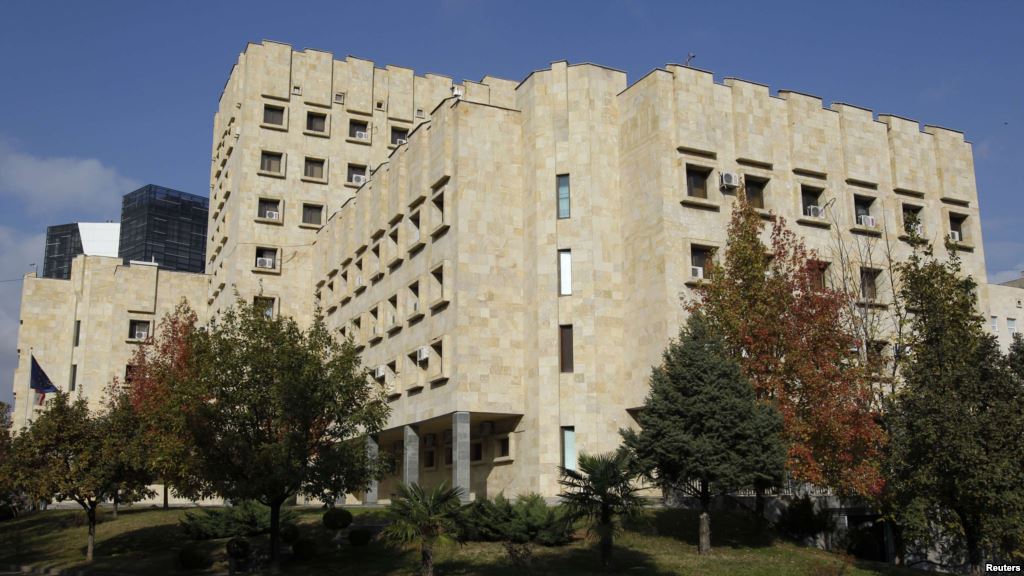


In 2015 the government of Georgia launched a reform to ensure independence of the office of prosecutor. The Ministry of Justice drafted a concept of the reform firs and later a draft of amendments to the Law of Georgia on Prosecutor’s Office. The Coalition for Independent and Transparent Judiciary criticized both the concept and the draft of amendments because they failed to ensure depoliticization and independence of the office. Recommendations of NGOs were disregarded while only part of recommendations of the Venice Commission were reflected in the draft law, which is hardly adequate to ensure meaningful independents of the prosecution system.
The Coalition believes that the process of implementation of the foregoing legal amendments was flawed. In particular, the process of selection of members of the Prosecutor’s Council through a conference of prosecutors as well as selection of candidates for the Office of the Chief Prosecutor by the Council of Prosecutors was not transparent, which called credibility of the process into question.
A conference of prosecutors was held to select members for the recently established Council of Prosecutors. Although the conference itself was open for outside observers, most important part of the process - nomination of candidates for membership by initiative groups – was held behind closed doors, which prevented observers from monitoring the situation to determine credibility of motives and fairness of internal procedures that was used to nominate the candidates. The Coalition has already issued a statement criticizing the process.
In addition, because the law does not envisage guarantees for meaningful independence of the Council of Prosecutors, right at the beginning of the process non-majority members of the parliament refused to use their quota (one seat), which considerably deteriorated the level of representation of the Council. Many NGOs waived their right to nominate candidates due to flawed legal regulation of the selection process and a number of shortcomings that made their participation in the process meaningless.
Deficiencies identified during each stage of the process cast a shadow over the process of election of members of the Council in a free and open environment and consequently, over the legitimacy of the Council.
On November 19, 2015, a meeting of the Council of Prosecutors was held to discuss election of the Chief Prosecutor. The process of election, including nomination of candidates by the Minister of Justice, basis for the nominations as well as interviews with the candidates lacked openness and transparency. Before the said meeting of the Council, the Ministry of Justice of Georgia reported that the process of election of the Chief Prosecutor would be open and all interested individuals would be able to observe it, while in reality the only open part of the meeting was the secret ballot for choosing among the candidates. The process of interviewing candidates for the office was closed. Meetings of the council are closed by the Council Statute adopted under the Decree of the Minister of Justice. We believe that holding meetings of an independent collegial agency – Council of Prosecutors – violates the legal principle of openness of meetings of collegial agencies mandated by Article 32 of the General Administrative Code of Georgia.
In addition, violation of the principle of openness contradicts the declared goal of the reform itself: establishing a new rule for electing the Chief Prosecutor, creating an independent collegial agency of prosecutors (the Council of Prosecutors) and delegating it with the function to participate in election of the Chief Prosecutor, in order to ensure open and transparent election of the Chief Prosecutor to depoliticize the process. In view of the foregoing arguments, importance of the issue and high public interest involved, closing the most important stages of election of the Chief Prosecutor to public is unfair.
In addition, certain questions about effectiveness of activities of the office of the prosecutor as well as its political neutrality remain unanswered. Many high-profile cases are yet to be prosecuted and resolved, while certain cases raise suspicions about selective application of justice, which also falls within the scope of responsibilities of current decision-makers in the prosecution system.
In light of the foregoing, we urge Georgian MPs to take into account the shortcomings in the process of nomination and selection of candidates, which prompted many groups to decline participation in the process. The Parliament should realize the political responsibility of the decision it is about to make. The Parliament should plan and ensure meaningful reform of the prosecution system based on this experience and take meaningful steps towards ensuring independence of the prosecution system.
Any successful reform requires public support and trust, which are both lacking in the present case. The process of reform, ineffective legislative reform and shortcomings in the process of implementation undermined efforts of the reform and public trust and support towards the process.
Georgian Young Lawyers Association’ (GYLA)
Human Rights Education and Monitoring Center (EMC)
Transparency International – Georgia (TIG)
Human Rights Center
Open Society – Georgia Foundation (OSGF)
Article 42 of the Constitution
International Society for Fair Elections and Democracy (ISFED)
Institute for Development of Freedom of Information (IDFI)
ჯ. კახიძის #15, თბილისი, საქართველო, 0102 ; ტელ: (995 32) 95 23 53; ფაქსი: (995 32) 92 32 11; ელ-ფოსტა: gyla@gyla.ge; www.gyla.ge
15, J. Kakhidze str. 0102, Tbilisi, Georgia. Tel: (995 32) 95 23 53; Fax: (995 32) 92 32 11; E-mail: gyla@gyla.ge; www.gyla.ge